A Breakthrough for Millennial Hair Stylists
Shared Salon Suites
Beauty supplies, salons, and hair stylists are needles and threads of the beauty supply industry. When a beauty supply store offers a wide range of high quality products, stylists can recommend their choice of products to clients, and beauty supplies can get a sales boost through the word of mouth. Knowing this, smart beauty supply owners provide special discounts to salon owners and stylists as well as to work hard to generate goodwill with them. In a similar manner, companies of hair products and chemicals also run programs for salon stylists in their target regions, set high priorities for them to receive new products first, among others. Hair stylists’ influence over the industry is quite immense.
“Beauty Shop” is a movie starring Queen Latifah. In the movie, the protagonist is a hair stylist from Chicago who acquires a beauty salon in Atlanta. While the main plot entertains you, you will also notice that the African American beauty shops are not just for hairdressing but for making friends and networking in the local community. Aside from people who come in for hair appointments, salons host a community gathering. Comedian Chris Rock’s “Everybody Hates Chris” staged in 90s’ Brooklyn illustrates the African American culture fairly well. In a scene, Chris’s mother spends time to work on her outfit and makeup before going to a hair salon for her hair appointment. Customers do not leave immediately after their hair is done. There are clients waiting their turn. While they stay for their procedures and treatments, their friends and neighbors stop by to talk. It is a most popular hangout for every women in the town.
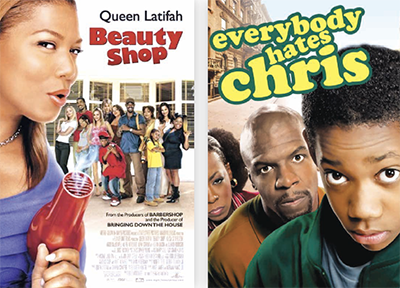
Queen Latifah’s “Beauty Shop” Poster ©media-amazon.com / “Everybody Hates Chris” tells stories of an African American household of ’90s. ©cwtv.com
Salon businesses, like other businesses, were severely impacted by the pandemic that has lasted three years now. Especially because it is a people business requiring physical contacts, the toll was greater. Almost every salon shut down the business, and per local government policy, a business violating mandated shutdown was subject to harsh penalties. As they needed to make a living, some of them operated under their house roofs, which is only temporary and cannot last forever. Salons in America have now resumed their normal operation although they are required to wear masks when providing services to the clients. In a few states, the mask requirement is waived for the vaccinated, but for the close proximity of the hair stylists and clients during service, it is an inevitable outcome.
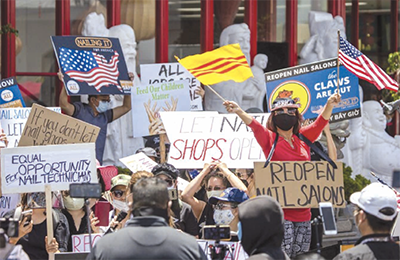
Protesters demand re-opening of salon businesses ©brightspotcdn
In 2020 and 2021, a lot of salons could not afford their rent while not running their business and closed the business permanently or moved to a location with a cheaper rent. Still, the variants of coronavirus are spreading, so not many hair stylists are willing to return to salons. Some of them even left the field entirely and pursued a new career while the salon doors stayed closed.
Hair stylists who went out of work could not fully benefit from the federal aids either. For hair stylists who are mostly independent contractors, PPP was out of their reach. Not many hair stylists are financially secure enough to open their own shop.
In this circumstance, millennial hair stylists came up with a new idea to open their own salons. This business model is highly decorated in 2021 and 2022 with strong supports from hair stylists. Let’s see how those salons run their business and what has changed from the traditional beauty salon business.
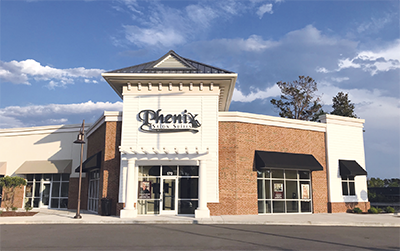
Salon suites occupying a large retail space. ©phenixsalonsuites
Salon suites are essentially a shared salon space for hair stylists. You can start your own salon business without investing a lot of money. Fully furnished with chairs, mirrors and essential equipments, this maintained space is carefree. The business model resembles that of WeWork that transformed an office building into shared office space and became a huge real estate company. Stylists can save their money in opening a new shop, so for a new stylist dreaming of running their own shop, this is a great opportunity.
Salon suites offer co-working space for stylists. This is different from chair rental that was prevalent among hair stylists because the salon suite is more private. Millennial hair stylists prefer to work in a private space focusing on the quality of the service instead of working at a community hangout. Traditionally, stylists shared their profit with their salon owners who run the shops, but in salon suites, you pay the rent and keep all of your fees. For the suites they rented, you can change the interior to your taste and adopt any payment method.
A typical floor plan as shown below has small rooms created by walls raised in a large space, and hair stylists can rent individual rooms. In addition to privacy to stylists and clients, everyone plays on the level playing ground. Of course, you can gain regulars by your skills and techniques. However, there is no service fee discrepancy for different levels of hair stylists at a salon. While a newly licensed hair stylist can face a lower barrier of entry, hair stylists in general will face more intense competition. If everyone focuses on developing their skills and techniques and creating goodwill with clients, the salon industry can advance altogether.

Floor plans of a salon suites ©theoasissalonsuite
Salon suites can offer convenience to clients in addition to stylists. They can receive hair make-ups, nails, skincare, and so on in one place, which requires less traveling across the town to get different services. This means a drastic change in the salon landscape of many local communities. Nonetheless, as a means to overcome the hardship caused by the pandemic, the business model will likely have a firm root.
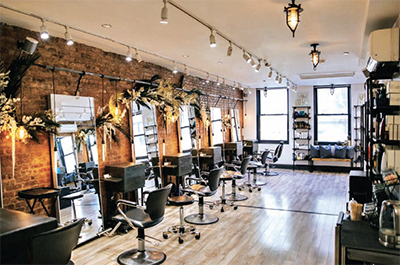
Traditional salon ©squarespace-cdnaah
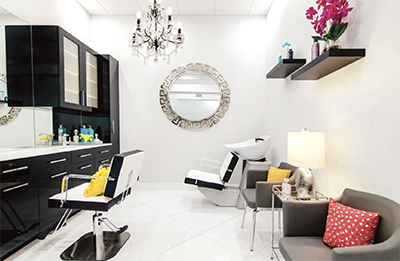
Salon Suite ©squarespace-cdn / butritebeauty
The number of salon suites exploded in the last two years, but they existed from 2010. They have been gaining the support of hair stylists and grew in size, and in the pandemic, the popularity among the hair stylists and clients multiplied. For many newly licensed hair stylists, the high cost of rent and business setup have forced them to postpone their dream of opening their own shops. Now, they can run their own businesses and support their families thanks to salon suites. We share success stories of hair stylists who made their dreams and are now eager to assist newcomers.
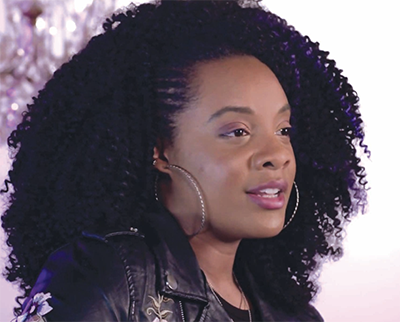
Sade Williams ©i.ytimg @SadeMilindaStudio
NYC-based hairstylist Sade Williams worked at one of the most prestigious salons in the industry but knew she had the potential to build her own brand. She made the move to a salon suite because she wanted an intimate salon home for her guests, many of whom are high-profile models and celebrities. Coming from a high-end salon environment, salon suite gave her the opportunity to design her studio and recreate that luxury feel. She even created an assistant/apprenticeship program where she trains her mentees on how to do high-end salon or editorial work in their own salons.
“Being at a salon suite has made me more confident in my business. It has taught me structure and responsibility. I get excited to go to work every day because I get to make my own rules. I have the freedom to be flexible, which allows me to focus on my personal life and salon life without being tied down.”
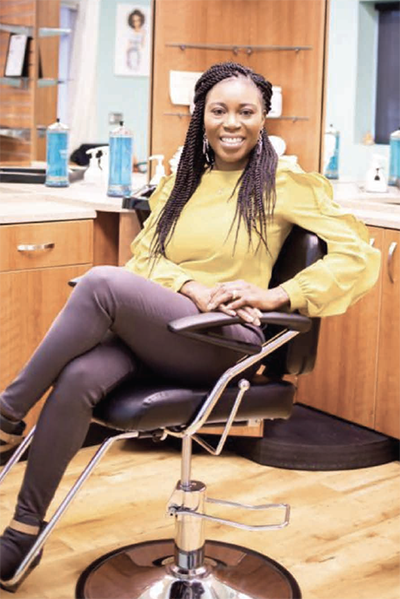
Elom ©chezelom face book @elomshairstudio
Elom’s journey to success is nothing short of inspiring, uplifting and amazing! Elom grew up in Togo, West Africa and moved to the United States with her husband, whom she met in 2009 while he was working in the Peace Corps. At that time, she had no salon, no clients, and no experience in the beauty industry. She spoke almost no English and had to take classes at her local community college, and once she got some English under her belt, she enrolled in beauty school because she has always had a love for doing hair. She graduated beauty school five months pregnant. After she took her state license, with a 6-week-old son, she began driving around looking for a salon to call home. She signed a salon suite lease with no clientele, with no business background or experience, and five years later owns a thriving salon focusing on natural hair, extensions, and braiding.
Many other hair stylists are reporting their success stories, and the salon suites are rapidly increasing in number. The salon suites are increasing their popularity among other beauty services in addition to African American hair stylists.
Stylists and beauty supplies are in a tight relationship. The revolutionary salon suites will certainly make impact on the beauty supply industry, and we will continue to report insights including their pros and cons as well as profitability as a real estate business.